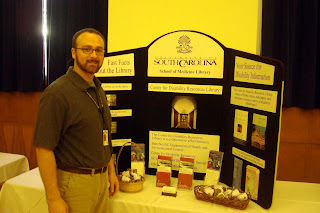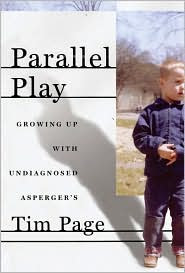 September 30, 2010
September 30, 2010
10 am to 6 pm EST
Peeples Auditorium, DHEC, 2600 Bull Street, Columbia, SCThis is an online training that we'll be showing at the Peeples Auditorium. Come for all or part of the day.
Sponsored by the South Carolina Assistive Technology Program and the SC Assistive Technology Advisory Committee
Space is limited. Registration information is below.
Creating an open, accessible web is just best practice. With flexible content delivery and usable applications that benefit all of us, the truly Accessible Web is available to everyone all the time, regardless of ability. Spend some time with the Accessibility experts and find the inspiration and practical knowledge you need to make your Web presence truly universal.
SessionsIs Universal Design Still Possible? by Matt May
* The web platform has changed a lot over the last few years. Barely three years ago, the iPhone was the biggest challenge for practitioners of universal design.
* In 2010, though, there are phones, tablets, new browsers and almost innumerable operating systems, each with their own capabilities and limits. Not to mention the needs and preferences of seniors and people with disabilities.
* How can you create beautiful sites that are accessible by mouse, keyboard, touch and screen reader, while using the best features of HTML5 and CSS3? We will apply the lessons of the iPhone and iPad, learn about the challenges of HTML5, and see what is necessary to create a single site for everyone.
Practical Accessibility Testing by Glenda Sims
How do you know if your web site is accessible? Can automated testing tools help?
Glenda Sims will share gems from her 10+ years of experience testing sites for accessibility. Equip yourself with free and powerful testing tools. Learn how to turn it up a notch when you need to monitor accessibility across a vast enterprise. See some of the very latest testing tools that will help you evaluate color contrast, dynamic content and WAI-ARIA compliance.
Accessible CSS by Marla Erwin
Learn CSS that's cool, sneaky, and fun and best of all, that will make your designs soar without leaving accessibility behind.
* Fluid, flexible, and fixed width layouts: Learn to love them all
* Stealth backgrounds: images that expand with your layout
* Em-based values: the "zoom" feature on steroids
* Alternate stylesheets: offer great choices, then let the user decide
If you're a designer or developer frustrated by the "limitations" of designing compliant pages, you'll be out of excuses after this entertaining and eye-opening session.
Progressive Enhancement with ARIA by Aaron Gustafson
If you've been paying attention for the last few years, you're likely well-versed in progressive enhancement and it's content-out approach to web design, but you may be less familiar with the Accessible Rich Internet Applications spec and how you can leverage its enhanced semantics to provide a truly accessible experience.
In this session, we'll cover the following:
* Discuss progressive enhancement and where ARIA fits into the mix
* Examine how ARIA's landmark roles can provide additional clues as to document structure
* Look at the various roles and states ARIA defines for building accessible widgets
* Cover how to leverage tabindex in an effort to create a better overall experience when using the keyboard
* Walk through the construction of an ARIA-enabled widget, from markup to scripting, following the progressive enhancement process
Accessibility & Compatibility by Jared Smith
With a focus more on what Web developers can do to ensure accessibility and compatibility, Jared Smith overviews how people with disabilities access and use the web and how to ensure optimal compatibility of web content with assistive technology.
Assistive technologies can make disabilities mostly irrelevant on the web, so long as web pages are designed and developed to be compatible with those technologies. So, let's stop disabling our audience and focus on making our Web sites truly accessible.
Accessibility & HTML5 by Christopher Schmitt
At over 900 pages, the HTML5 specification sadly can't be distilled into a small session. So, Christopher Schmitt is focusing on the cool stuff. In addition to an overview of HTML5 layout structure, Schmitt looks at the CANVAS element and how multimedia elements like AUDIO and VIDEO can be made more accessible.
To register for this workshop:
Option 1: Complete the online registration form (preferred)
Option 2: Fax your registration information to (803)935-5342 or email it to Will.McCain@uscmed.sc.edu. Please include your name, organization, address, email address, and phone number.
NOTE: For more information on the summit click on the title above.
 ScienceDaily (Sep. 27, 2010) — Family members and close friends are more sensitive to early signs of Alzheimer's dementia than traditional screening tests, according to researchers at Washington University School of Medicine in St. Louis.
ScienceDaily (Sep. 27, 2010) — Family members and close friends are more sensitive to early signs of Alzheimer's dementia than traditional screening tests, according to researchers at Washington University School of Medicine in St. Louis.



















